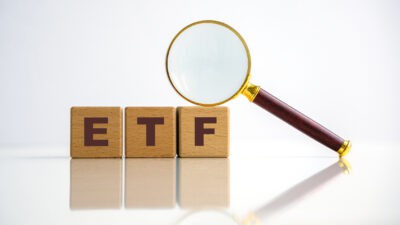Time and time again, statistics show that the most popular ASX exchange-traded funds (ETFs) are those that track ASX shares themselves.
That is not too surprising. Australian investors seem patriotic in that way, or perhaps they just stick to the companies we all know best. But international ETFs have also been rising in popularity as many investors want to add exposure to world-class companies outside Australia, companies perhaps like Apple Inc (NASDAQ: AAPL) and Amazon.com Inc (NASDAQ: AMZN), to their portfolios.
ETF provider Vanguard has the distinction of running the ASX's most popular ETF — the Vanguard Australian Shares Index ETF (ASX: VAS). VAS is by far the winner. But Vanguard's flagship international offering — the Vanguard MSCI International Shares Index ETF (ASX: VGS) — is a distant laggard. It is not even the ASX's most popular international shares ETF. That honour goes to the iShares S&P 500 ETF (ASX: IVV).
VGS vs. IVV: Which ASX ETF comes out on top?
VGS and IVV are both remarkably similar, and yet quite different. On paper, VGS is far more diversified than IVV. It invests in shares ranging from more than 20 different advanced economies. These include Britain, Japan, Canada, the United States, and Europe. Its current basket counts almost 1,500 different individual shares.
In contrast, IVV tracks the US-centric S&P 500 Index. This index houses 500 of the largest companies that are listed on the US markets.
Yet both ETFs here largely have similar top 10 holdings. That is because both ETFs are weighted by market capitalisation. And the largest companies on both the S&P 500 and in VGS both happen to be the same.
But let's get down to the $64,000 question: which ETF has been better to own for investors?
So as of 30 April, the iShares S&P 500 ETF had returned 8.5% over the preceding 12 months (including the value of dividend distributions). Over the past three years, IVV units have returned an average of 13.2% per annum. That grows to 14.5% over the past five years.
In contrast, VGS has returned 4.7% over the past year. It has averaged 10.1% over the past three, and 11.4% over the past five.
So it appears VGS's increased diversification has held this ETF back compared to IVV. This makes IVV the unbridled winner in a showdown with VGS over any recent time period.
Of course, past performance is no guarantee of future gains, so this could well change in the future. But it perhaps explains why iShares' S&P 500 ETF remains a far more popular choice than Vanguard's International Shares ETF for ASX investors.









